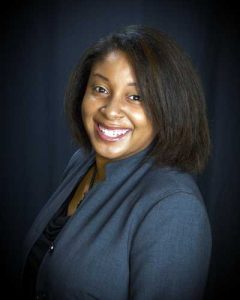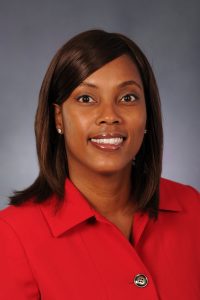This post is written by NCTE members Tiffany Flowers and Kimberly Frazier.
Each year during Black History Month, the National Council of the Teachers of English kicks off the African American Read-In. This program takes place in K–12 schools, preschools, communities, and colleges around the country. As a Literacy Educator and Counselor Educator team, we train professionals for three purposes:
- To expose teachers to diverse books for children
- To handle issues that arise when discussing diverse books
- To answer questions arising from parents, principals, teachers, and students about the justification for having the African American Read-In.
Additionally, we ask our volunteer readers to practice and come to the Read-In ready to share the love of reading diverse literature with students.
The most difficult problem we encounter each year is not the attitudes of parents or even students. It is often the response we receive from our colleagues within schools and classrooms. On one hand, principals and teachers regard us as wonderful visitors who are providing the students with opportunities they do not have readily available. On the other hand, we are met with some disdain for our culturally relevant practices as well. Some professionals have the hardest time trying to figure out why the program is such a big deal. For many of our volunteers, these comments bring back the negative memories of our own school experiences. There were few African American books that were published from 1980 to 1990. Often, the small number of books that existed were not made readily available in the classroom, library, or local bookstores. Therefore, many of the volunteers who participate in this program view it as crucial and rich program. The ability to share a portion of African American history as well as helping children discover their love of books is a dream experience. This helps to awaken their love for reading diverse literature in the classroom.
As professionals, we must seize the opportunity to share these diverse books with all students. Further, we must appeal to the teachers who may be resistant or hesitant to implement this national program. Understanding diversity as being fair, just, and equal is not enough. Diversity practices must include putting culturally relevant ideas into action. Otherwise, it is merely academic rhetoric without a practical function. As K–12 professionals, the need to put our ideas into action immediately should be obvious. We should have a sense of urgency in terms of making diverse literature available, accessible, and integrated within the classroom.
We would like to thank every teacher, parent, student, principal, and community organizer who not only sees the importance of sharing diverse stories with children, but put their beliefs into action. Through sharing African American children’s literature, your actions have the potential to open children’s minds to new experiences. As Maya Angelou once said:
Any book that helps a child to form a habit of reading, to make reading one of his deep and continuing needs, is good for him. – Maya Angelou
For more information regarding the African American Read-In, please visit the program website.

Tiffany A. Flowers, NCTE member since 2015, is an assistant professor in the Department of Cultural and Behavioral Sciences at Georgia State University Perimeter College. You can contact Dr. Flowers at tflowers@gsu.edu.
 Kimberly Frazier, NCTE member since 2005, is an assistant professor in the Department of Counseling and Educational Psychology at Texas A&M University Corpus Christi. You can contact Dr. Frazier at kimberly.frazier@tamucc.edu.
Kimberly Frazier, NCTE member since 2005, is an assistant professor in the Department of Counseling and Educational Psychology at Texas A&M University Corpus Christi. You can contact Dr. Frazier at kimberly.frazier@tamucc.edu.

